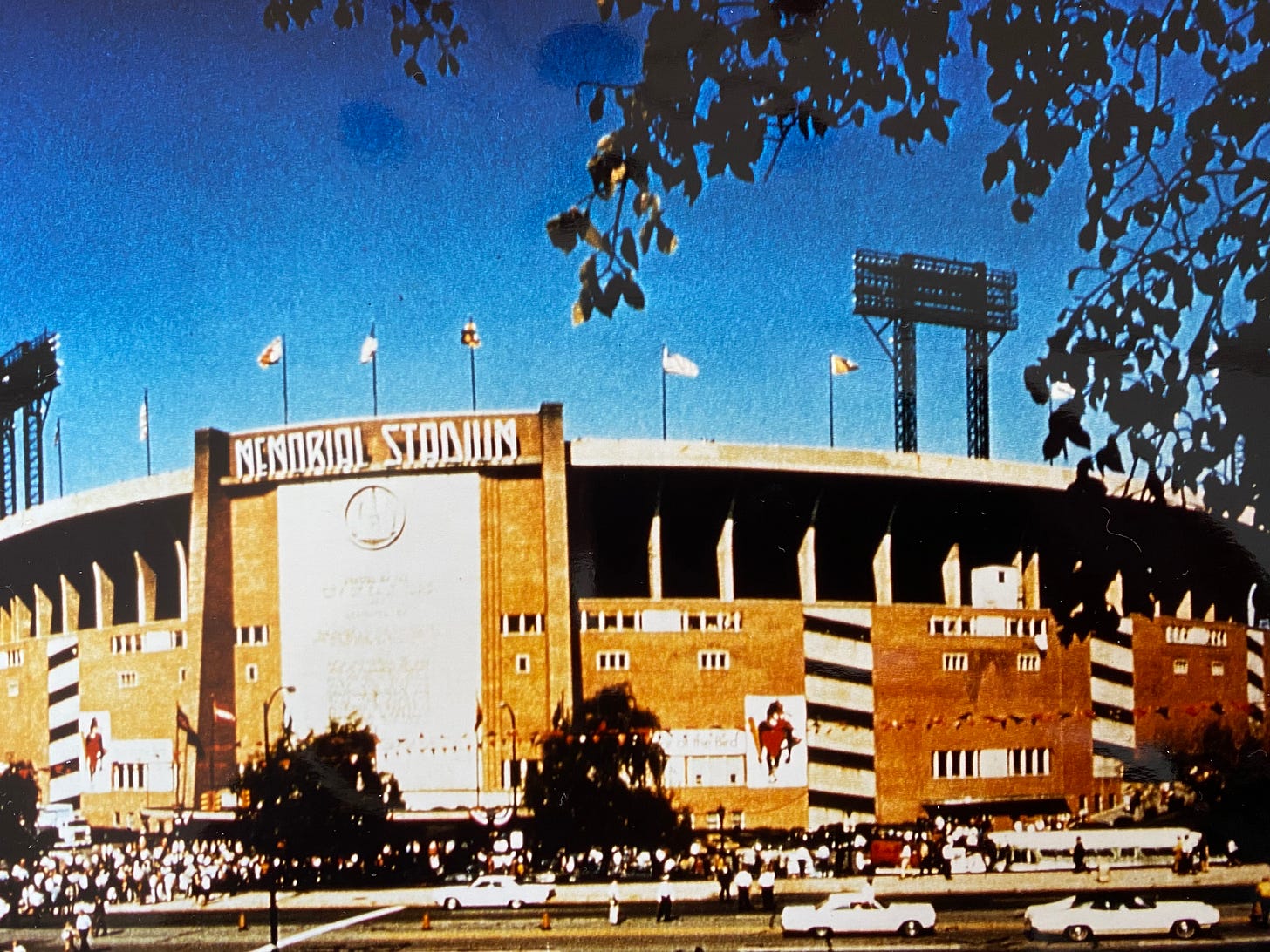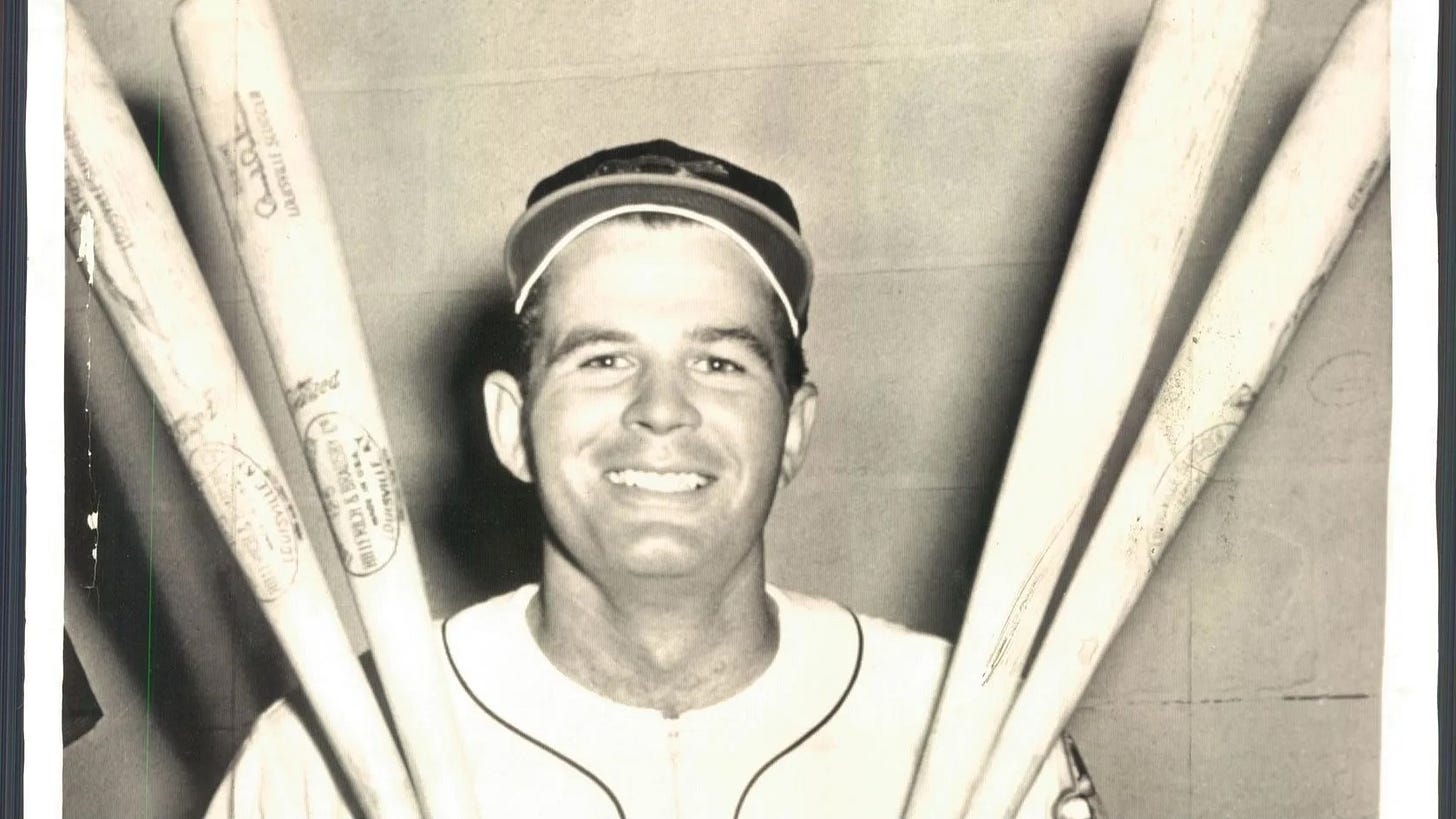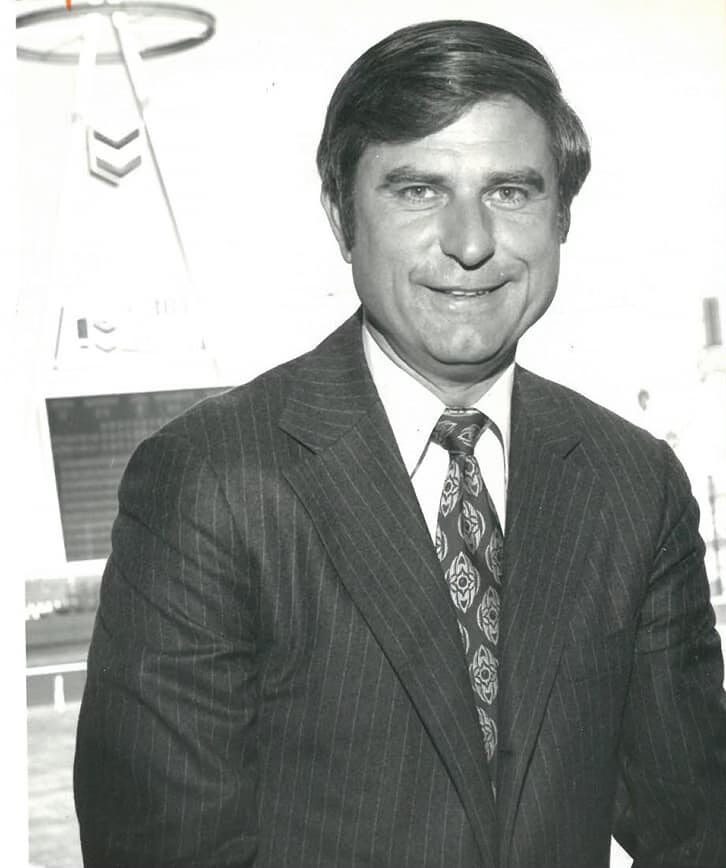Election Stress Relief: The Bird Tapes
If you're stressed about Tuesday's presidential election and need a distraction, here are parts of several of the Bird Tapes' most popular interviews, unlocked and available to all subscribers.
One of the most anticipated and unique vintage interviews in the Bird Tapes collection is next up in the queue. A lot of people have told me they’re interested to hear my two-hour sit-down with Peter Angelos, recorded over lunch at a restaurant in Little Italy in the fall of 2000. Well, it’s coming.
But with Tuesday’s presidential election sucking up so much attention and oxygen across America this week, I’m going to hold off for now and post the Angelos interview starting next week.
The first half will go up next Monday, the second half a week later. I recently re-listened to it nearly a quarter-century after it happened, and all I can say is: It’s one you don’t want to miss.
In the meantime, the least I can do is offer a bit of relief to those feeling stressed about the election. Below are lengthy cuts from four of the Bird Tapes’ most popular interviews, unlocked and available to all subscribers.
(If you’re a free subscriber and like what you hear below, you can click on this link to upgrade to a paid subscription, which gives you access to the entire Bird Tapes archive as well as immediate access when an interview is posted.)
JIM GENTILE
In Part 1 of his interview, “Diamond” Jim begins by reflecting on his years in the Brooklyn Dodgers’ minor league system in the 1950s. Sandy Koufax was among his generation of signees who struggled to reach the majors. He went to the Orioles in 1960 in a Rule 5-like draft, with the understanding that he’d go back to the Dodgers if the Orioles didn’t want him. He flopped in spring training, but manager Paul Richards still gave him a shot. The arc of his career changed on May 9, 1961, when he hit a grand slam in the first inning of a game in Minnesota and then hit another grand slam in the second inning. It turned out he’d stayed out all night before the afternoon game. He went on to have a career year in 1961 with 46 home runs and 141 RBI, but he lost patience as a hitter after that. The big season surprised Gentile because Memorial Stadium was so huge, a tough place to hit.
Listen to Jim here:
MIKE FLANAGAN
In Part 2 of his interview, Flanagan says that after the Orioles lost the 1979 World Series in seven games, it was frustrating for them to continue winning without reaching the playoffs in the early 1980s. That frustration ended in 1983 when the Orioles’ core had been together for nearly a decade and was hellbent on going all the way. It was a smart, resourceful core that knew how to win and have fun. Manager Earl Weaver was tough to play for, Flanagan says, but he’d pull five games a year out of his hat. Showing they could win without Weaver was part of the players’ inspiration in 1983. The American League Championship Series with the White Sox was the real challenge of the 1983 postseason, more than the World Series with the Phillies. The players thought they’d win forever, but things began to change in 1985 and 1986. Some new players who came to Baltimore were non-believers in the Oriole Way. Flanagan tried to mentor his successor as the left-hander in the rotation, Jeff Ballard, but found Ballard reluctant to accept advice. Being traded to the Toronto Blue Jays in 1987 rejuvenated Flanagan. Returning for a second act in Baltimore in 1991, he made the roster as a relief pitcher on a day he thought he was ready to walk away.
Listen to Flanagan here:
HARRY DALTON
In Part 2 of his interview, Dalton begins with the stories of how the Orioles signed Jim Palmer, Wally Bunker and Dean Chance, three of their best pitching prospects, in the early 1960s. He discusses nurturing Earl Weaver when Weaver was a low-level minor league manager constantly in hot water with umpires and league offices. One night, Weaver pulled third base out of the ground and walked away with it. One person in the industry told Dalton that Weaver would never succeed as a manager in the major leagues. Dalton disagreed because Weaver had won at every level in the minors. He discusses his decision to change managers from Hank Bauer to Weaver in the middle of the 1968 season. He ends with his version of the story behind the Frank Robinson trade. He gets the credit for it but gives credit to his predecessor as GM, Lee MacPhail. Dalton says his role in the deal was he didn’t blow it.
Listen to Dalton here:
BOOG POWELL
In Part 1 of his interview, Powell unspools the story of his signing with the Orioles and his first years in professional baseball. A star lineman in football, he could have gone that route or even played college basketball, but he preferred baseball. He was a hot prospect until he performed poorly in the Florida high school state championship tournament as a senior in 1959. But the Orioles’ scout, Fred “Bootnose” Hofmann, stuck with him. Two days after he signed, he joined the Orioles’ rookie-ball team in Bluefield, West Virginia. The caliber of the pitching initially intimidated him, but he settled in. After that season, he played in the Florida Instructional League over the winter. With just that limited experience, he almost made the major league team as an 18-year-old in the spring of 1960. But manager Paul Richards said he was too young and the Orioles already had Jim Gentile at first base. Boog ended up playing in Appleton, Wisconsin, for a young manger named Earl Weaver. Powell ends with a classic story about a minor league teammate, John Papa, who got called up but experienced a nightmarish major league debut.
Listen to Boog here:










Nothing like the Bird Tapes to meke me forget about Tuesday!